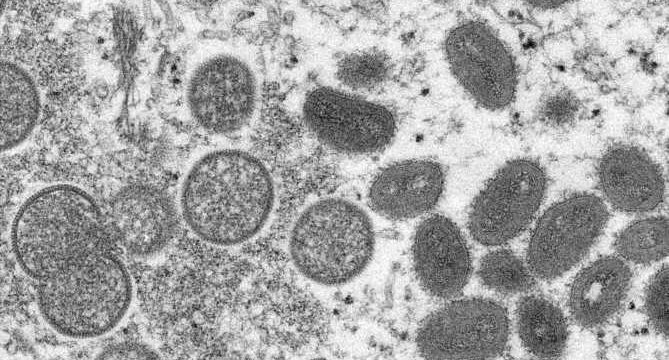CASES of monkeypox are rising across the globe with more set to be identified in the coming days.
Last night medical chiefs confirmed a further 36 infections had been recorded in England.
It brings the total to 56, with one case also being reported in Scotland yesterday.
The monkeypox outbreak, now spanning some 20 countries, is mystifying health leaders.
It is endemic in West and Central Africa, but extremely rare elsewhere.
However, between 100 and 200 confirmed and suspected cases have been detected in recent weeks across the world.
Read more on monkeypox
UK confirms 36 NEW cases of monkeypox – as Brits urged to watch for symptoms
Monkeypox chart reveals the earliest signs of symptoms to watch out for
The key signs to look out for include a fever and headache, but officials have warned that some groups are more at risk than others when it comes to catching the illness.
The World Health Organisation (WHO) says that anyone who has close physical contact with someone who has symptoms of monkeypox, or with an infected animal are at highest risk of infection.
Official guidance states there are four main groups at risk:
- Newborns
- Children
- People who are immunocompromised
- Health workers
Most read in Health
VIRAL SPREAD UK confirms 36 NEW cases of monkeypox – as Brits urged to watch for symptoms
Holiday warning for Brits as Monkeypox spreads across popular tourist spots
I’m a doctor – here’s 4 signs of burnout you must never ignore
Monkeypox chart reveals the earliest signs of symptoms to watch out for
Medics explained that newborns are at risk – just as they are with other illnesses, due to the fact that their immune systems have not yet been fully formed – meaning they are more susceptible to infection.
They added: "Newborns, children and people with underlying immune deficiencies may be at risk of more serious symptoms and death from monkeypox.
"Health workers are also at higher risk due to longer virus exposure."
Those who are vaccinated against smallpox are likely to have some protection against the monkeypox infection.
Currently people who have been in contact with those infected are being given the vaccine as a precaution.
Experts at the WHO said: "Younger people are unlikely to have been vaccinated against smallpox because smallpox vaccination stopped worldwide after smallpox became the first human disease to be eradicated in 1980.
The signs of monkeypox you need to know
Initial symptoms of monkeypox include:
- Fever
- Headache
- Muscle aches
- Backache
- Swollen lymph nodes
- Chills and exhaustion
A rash can develop, often beginning on the face, then spreading to other parts of the body including the genitals.
The rash changes and goes through different stages.
At first it can look like chickenpox, before bumps become raised and filled with pus.
These lesions finally form a scab, which later falls off.
"Even though people who have been vaccinated against smallpox will have some protection against monkeypox, they also need to take precautions to protect themselves and others."
There has been some speculation that homosexual men are driving up cases of the illness – but that is not the case.
A notable number of infections are among men who are gay and bisexual, which is being closely investigated.
'RAPID SPREAD'
Monkeypox is not considered to be a sexually transmitted infection (STI).
However, it can be spread through sexual contact when someone touches the lesions of an infected person.
It can be spread through touching clothing, bedding or towels used by someone with the monkeypox rash.
Coughs and sneezes are also a mode of transmission.
Dr Ranj Singh said men who have sex with men (MSM) may have multiple intimate contacts which has allowed more rapid spread.
"It may just be that MSM networks have incidentally presented the virus with an ideal storm of conditions in which to multiply.
Read More on The Sun
I’m a fake tan guru – my tip makes sure you NEVER end up with orange sheets
Watching too much TV ‘increases your risk of dying young from killer disease’
"So this community should definitely be on increased alert," he told Attitude.
The WHO added: "The reason we are currently hearing more reports of cases of monkeypox in communities of men who have sex with men may be because of positive health seeking behaviour in this demographic."
We pay for your stories!
Do you have a story for The Sun news desk?
Email us at [email protected] or call 0207 782 4104. You can WhatsApp us on 07423 720 250. We pay for videos too. Click here to upload yours
Click here to get The Sun newspaper delivered for FREE for the next six weeks.
Source: Read Full Article







